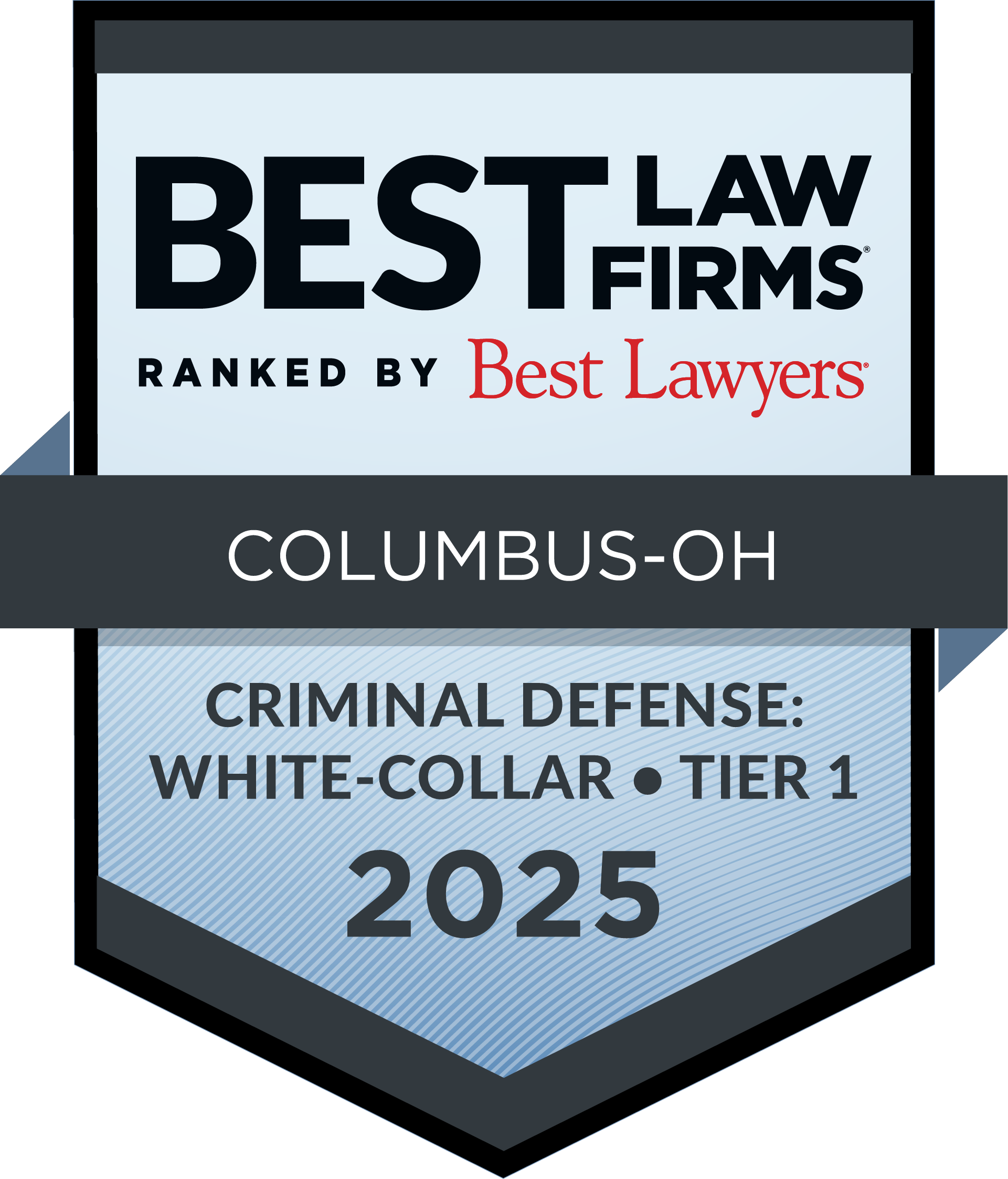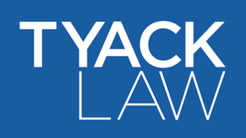When you are arrested for OVI in Ohio, contacting an experienced Columbus DUI attorney as soon as possible will likely be your best defense. An experienced Columbus OVI defense attorney can evaluate and discuss with you all of the options available to you for fighting your specific OVI charge in Ohio.
The criminal defense lawyers at Tyack Law Firm will consider a number of possible defenses when fighting your OVI charge, including whether a law enforcement officer manipulated you into making potentially incriminating statements that can be used as evidence against you without first reading your constitutional rights to you.
Fifth Amendment Miranda Rights
After a law enforcement officer stops you, you may be subjected to a series of questions during your detention that are designed to elicit incriminating responses without first giving you your Miranda warnings.
The Fifth Amendment to the United States Constitution, which is applicable to the states through the Fourteenth Amendment, provides that no person “shall be compelled in any criminal case to be a witness against himself.”[1] The inherently coercive nature of custodial interrogation heightens the risk that a suspect will be denied the Fifth Amendment privilege not to be compelled to incriminate himself because custodial interrogation can “undermine the individual’s will to resist and * * * compel him to speak where he would not otherwise do so freely.”[2]
“[T]he privilege [against self-incrimination] protects an accused only from being compelled to testify against himself, or otherwise provide the State with evidence of a testimonial or communicative nature[.]”[3]
In light of the inherent coercion involved in custodial interrogation, Miranda established “a set of prophylactic measures” to safeguard the constitutional privilege against self-incrimination. In broad terms, Miranda held that the state may not use a defendant’s statements from custodial interrogation “unless it demonstrates the use of procedural safeguards effective to secure the privilege against self-incrimination.”[4] Prior to questioning, the police must warn the suspect “that he has a right to remain silent, that any statement he does make may be used as evidence against him, and that he has a right to the presence of an attorney, either retained or appointed.”[5] The Supreme Court recognized the importance of a suspect’s “real understanding” of his rights and his intelligent decision whether to exercise them.[6]
To determine whether a suspect knowingly, intelligently, and voluntarily waived his Miranda rights, courts examine the totality of the circumstances.[7] When the suspect is a juvenile, the totality of the circumstances includes “the juvenile’s age, experience, education, background, and intelligence” as well as his “capacity to understand the warnings given him, the nature of his Fifth Amendment rights, and the consequences of waiving those rights.”[8]
Coerced Statements During Traffic Stop or OVI / DUI Investigation
In Berkemer v. McCarty,[9] the Supreme Court of the United States held that roadside questioning of a motorist detained pursuant to a routine traffic stop does not constitute “custodial interrogation” under the rule announced in Miranda. Although an ordinary traffic stop limits the “‘freedom of action'” of the detained motorist and imposes certain pressures on the motorist to answer questions, such pressures do not sufficiently impair the motorist’s exercise of his privilege against self-incrimination to require that he be warned of his constitutional rights.[10]
A traffic stop is usually brief, and the motorist expects that, while he may be given a citation, in the end he most likely will be allowed to continue on his way.[11] Moreover, the typical traffic stop is conducted in public, where “[p]assersby, on foot or in other cars, witness the interaction of the officer and motorist.”[12] Therefore, the atmosphere surrounding it is substantially less “police dominated” than that surrounding the kinds of interrogation at issue in Miranda.
However, “[i]f a motorist who has been detained pursuant to a traffic stop thereafter is subjected to treatment that renders him ‘in custody’ for practical purposes, he is entitled to the full panoply of protections prescribed by Miranda.”[13] A policeman’s unarticulated plan has no bearing on the question whether a suspect was ‘in custody’ at a particular time; the only relevant inquiry is how a reasonable [person] in the suspect’s position would have understood his situation.”[14]
In Pennsylvania v. Bruder,[15] the Supreme Court of the United States held that an ordinary traffic stop during which the police officer asked the driver a modest number of questions at a location visible to passing motorists did not involve custody for purposes of Miranda. The Court noted its holding in Berkemer applied only to ordinary traffic stops, and observed a motorist “might properly” be found to have been placed “in custody” for purposes of Miranda safeguards where he was detained for over one-half hour and subjected to questioning while in a patrol car.[16] The Court noted that Berkemer applies only to “ordinary traffic stops” and not to the “unusual traffic stop” where a motorist is subjected to “prolonged detention” while in a patrol car.
If you made potentially incriminating statements to a law enforcement officer before you were properly read your Miranda warnings, a Columbus DUI defense lawyer may be able to argue that these statements were taken in violation of your constitutional rights. If argued successfully, the court may agree that those statements should be excluded from being presented into evidence. Without your statements, the prosecutor may have a more difficult time proving the OVI charge, and might be willing to negotiate a reduction or dismissal of your drunk driving case.
The Columbus DUI Attorneys at Tyack Law Firm
Criminal DUI charges in Ohio are serious. Consequences of a conviction can include jail time, loss of your driver’s license, and significant fines—not to mention the stigma of a criminal record. You may be tempted to try to represent yourself to save money, but your best chance at avoiding a conviction or getting reduced penalties is to have an experienced Columbus DUI lawyer in Columbus represent you. Your defense may come down to details in your case or nuances of the law that an experienced OVI defense attorney will be best equipped to use to your advantage. If your lawyer is successful in getting your charge dismissed or sufficiently reduced, he or she also may be able to help you get the arrest expunged from your record.
With the help of an experienced, competent Columbus DUI defense attorney, you can be assured of understanding all of your legal rights and options and know that your rights will be protected. The criminal defense team at The Tyack Law Firm protects rights of people charged with an OVI / DUI on a daily basis and would be honored to do so for you. To contact us, either call or contact us online here.
[1] State v. Leach, 102 Ohio St.3d 135, 2004-Ohio-2147, 807 N.E.2d 335, ¶ 11.
[2] J.D.B. v. North Carolina, 564 U.S. 261, 269, 131 S.Ct. 2394, 2401, 180 L.Ed.2d 310 (2011).
[3] Schmerber v. California, 384 U.S. 757, 761, 86 S.Ct. 1826, 16 L.Ed.2d 908 (1966).
[4] Miranda v. Arizona, 384 U.S. 436, 444, 86 S.Ct. 1602, 16 L.Ed.2d 694 (1966).
[5] Id.
[6] Id. at 469.
[7] State v. Clark, 38 Ohio St.3d 252, 261, 527 N.E.2d 844 (1988).
[8] Fare v. Michael C., 442 U.S. 707, 725, 99 S.Ct. 2560, 61 L.Ed.2d 197 (1979).
[9] 468 U.S. 420, 104 S. Ct. 3138, 82 L.Ed.2d 317(1984).
[10] Id.
[11] Id. at 438.
[12] Id.
[13] Id. at 440.
[14] Berkemer v. McCarty, 468 U.S. 420, 442 (1984)
[15] 488 U.S. 9, 109 S.Ct. 205, 102 L.Ed.2d 172(1988).
[16] Id. at 11, fn.2.
Related Areas
Talk with an experienced Lawyer today
Fill out the form to get started with your case evaluation.













